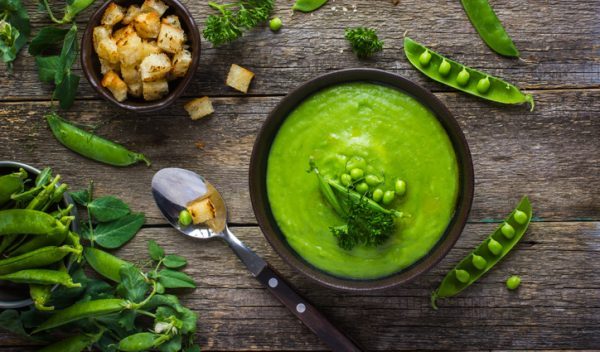
By Dr. Amy Sedgwick & Dr. Rashmi Bismark.
Spring is here in the Northern hemisphere and the green unfolding around us nourishes the soul through our eyes. Our energy and creativity are arising as we emerge from a more introspective winter phase and move into the active nature of spring.
During this time of year, Chinese medicine emphasizes light and pungent foods such as fresh herbs, garlic, young plants, fresh greens, sprouts and immature wheat or other cereal grasses. Foods are best cooked for a shorter time but at higher temperatures.
The Ayurvedic tradition of India offers similar wisdom. As the earth thaws from winter, frost turns to dew, and rains abound, the lusciousness of Spring is associated with the kapha dosha – cool, moist, heavy, soft, dense, and stable. Like in Chinese medicine, diets to maintain balance during kapha season encourage foods that are warm, dry, light, pungent, and astringent.
While you explore ways to nurture equanimity and resilience this Spring, consider bringing awareness to how the foods you are eating impact your vibrancy. Inviting a taste of mindful eating, use meals or snack times as an opportunity to simply observe the effects of various foods on your whole being with full attention and a bit of playful curiosity. What sensations arise in the body? Is there a feeling of lightness or heaviness, a sense of satisfaction or aversion, or maybe no change at all? What emotions and thoughts are triggered? How do these foods nourish you?
We would love to hear your experiences and invite you to share your favorite healthy Spring recipes with our Yoga Medicine community. In the meantime, here is a wonderful spring soup to tap into the essence of this time of year. Drawn from the amazing cookbook, The Love and Lemons Cookbook, by Jeanine Donofrio and Jack Mathews – the Spring Leek Soup with Purple Sage is a sure winner.

Love & Lemons photo, www.loveandlemons.com
Ingredients:
4 medium leeks
2 teaspoons (10ml) extra-virgin olive oil
2 Yukon Gold potatoes, chopped into 1/2-inch cubes
4 garlic cloves, minced
1/4c loosely packed thyme sprigs, coarsely chopped
11/2 cups cooked cannellini beans, drained and rinsed
1-2 tablespoons fresh lemon juice
1 recipe traditional pesto
Crusty sprouted bread
Sea salt and freshly ground black pepper
Traditional pesto (mix all of these ingredients together in a food processor until smooth):
1/4 cup evoo
2 tablespoons fresh lemon juice
1 clove garlic
2 cups basil
1/2 cups pine nuts
1/4 parmesan cheese (omit if vegan or use vegan substitute)
Directions:
- Slice the white and light green parts of the leek into rings. Using a strainer, rinse the leeks thoroughly.
- Heat the olive oil in a large pot over medium heat. Add the leeks and a pinch of salt and pepper. Stir and cook until the leeks begin to soften, about 2 minutes. Add potatoes and another few generous pinches of salt, and cook until the potatoes begin to soften, about 2 minutes.
- Add the garlic and sage and continue cooking for 1 more minute. Add the vegetable broth and thyme. Reduce the heat to a simmer and cook until the potatoes are tender, about 18 minutes, adding the cannellini beans during the last 5 minutes of cooking time.
- Add the lemon juice, then taste and adjust the seasonings, adding more salt and pepper as desired.
- Serve with traditional pesto and crusty sprouted bread on the side.
About the Authors:

Dr. Amy Sedgwick, MD, FACEP, E-RYT
Amy lives in Portland, Maine where she practices emergency medicine. In 2014, she opened Riverbend Yoga and Meditation Studio with an intention to help people achieve holistic wellness from within. In her teaching life, Dr. Sedgwick draws upon several disciplines combining her medical background and love of anatomy with her passion for yoga and the transformative effects of the practice. She completed her emergency medicine residency at Maine Medical Center and sees patients at InterMed, MMC, and Mercy Hospitals.

Dr. Rashmi Bismark, MD, MPH, RYT
Rashmi is a US-trained physician, board certified in Preventive Medicine and Public Health. In parallel with conventional medical training, Dr. Bismark has spent the past 15+ years studying various complementary and alternative healing modalities, including ayurveda, energy healing, yoga, and meditation. She is currently in the process of completing RYT-500 training with Yoga Medicine and is receiving mindfulness teacher training through the Oasis Institute, Center for Mindfulness, University of Massachusetts.
To read their full bios or to learn more about the Yoga Medicine team, click here.

